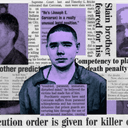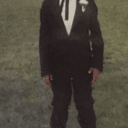By Karen Campbell
Boston Globe
April 3, 2008
Book Review: Change of Heart
By Jodi Picoult
Atria, 447 pp., $26.95
Novels by the prolific Jodi Picoult often have a provocative “ripped from the headlines” intensity, from the euthanasia issue of “Mercy” to the mass school killings in last year’s “Nineteen Minutes.” But with her latest novel, “Change of Heart,” Picoult creates her own sensational controversy that sits uneasily on the fault line of religion in America, which she believes has become one of the country’s most divisive. “Change of Heart” unflinchingly explores the complexities and emotions of the death penalty.
The story takes place primarily on death row, where a poor, uneducated young handyman awaits execution for the murder of a policeman and his daughter. As he contemplates his past and his fate, Shay Bourne, who has been marginalized for most of his life, comes to believe that the only way he can redeem his troubled existence is to donate his heart after his execution. However, there are two major stumbling blocks. The first is that the state of New Hampshire’s legal form of execution is lethal injection, which renders the heart unusable for transplant. The second is that Shay has picked a special recipient for his heart — the sister of the girl he is accused of killing — and the desperately ill 11-year-old Claire wants nothing to do with it.
Into this complicated setup arrive Maggie, Shay’s lawyer, and Michael, one of the jurors who reluctantly voted to convict Shay 11 years earlier. Now a somewhat conflicted priest, Father Michael finds himself in the role of the condemned man’s spiritual adviser. “Ever since I had taken my vows and asked God to help me offset what I had done to one man with what I might yet be able to do for others — I knew this would happen one day. I knew I’d wind up face-to-face with Shay Bourne.” However, Shay doesn’t recognize Michael, who keeps silent not to protect himself from Shay’s anger but to facilitate the man’s redemption.
Like “Nineteen Minutes,” “Change of Heart” unfolds through the first-person narratives of those involved, offering a variety of perspectives. In addition to Shay’s allies, there are Lucius, the artist with AIDS convicted of killing his lover in a fit of passion, and June Nealon, the still-grieving widow and mother of Claire. This gives the narrative richness and texture, but it can also feel a little formulaic after a while. The one person whose inner world we never plumb is Shay himself; except for moments of recounted dialogue, his story is told through other voices.
While “Change of Heart” is a compelling page-turner, it is more than just a suspenseful countdown to an execution. The disturbing, thought-provoking questions Picoult poses about capital punishment, the ethics of organ donation, and the moral dilemma of telling the truth at all costs go well beyond the issue of whether Shay will be allowed to die in a way that preserves his heart and whether Claire will accept it as her own.
Picoult also plants seeds of mysticism and miracles, as Shay begins to quote obscure gospels and those in his cell block experience unexplained instances of healing. This begins to attract fervent attention from people on the outside, who wonder if Shay is the Messiah. Is he a sinner or a saint? While intriguing, the overlay is a bit distracting, and this plot element, as well as an improbably facile romance between the self-denigrating Maggie and Claire’s doctor, lends “Change of Heart” the kind of leavening that says “commercial appeal.” But thankfully, its literary heart beats strong; Picoult is a skilled wordsmith, and she beautifully creates situations that not only provoke the mind but touch the flawed souls in all of us.
Karen Campbell is a freelance writer based in Brookline.



